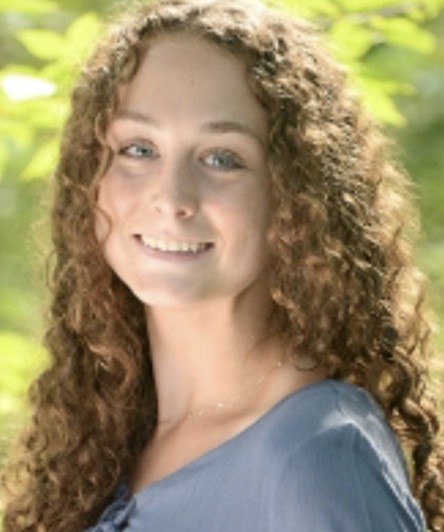RNA Institute Summer Program Local High Schooler Advances to International Science Competition
ALBANY, N.Y. (May 4, 2021) — One of the youngest members of the RNA Institute's 2020 Summer Bioinformatics program, high school senior Cristina DeMeo of Saratoga Springs, put the skills she learned to highly mature scientific use.

DeMeo used her knowledge of bioinformatics — the computational analysis of large datasets — to create an award-winning science project on the most common form of motor neuron disease, amyotrophic lateral sclerosis (ALS).
Her subsequent project, titled “A Differential Gene Expression and Alternative Splicing Analysis of ALS-Causing Mutations,” won first place in February in the Biomedical 1 section of the Eastern New York 17th Annual Subregional Junior Science and Humanities Symposium. Then, on March 20, it took the senior division first place prize at the 2021 Greater Capital Region Science and Engineering Fair.
With these victories, DeMeo now has joined finalists from around the world this week at the 2021 Regeneron International Science and Engineering Fair, which runs through Thursday.
“We couldn’t be prouder of Cristina and her work,” said Andy Berglund, director of the RNA Institute and professor in Biological Sciences.
A mission of the RNA Institute is to train the next generation of RNA researchers. “Trainees from all levels are welcome to participate in Institute programs and we are always open to philanthropic support for programs like the one that has led to Cristina’s wonderful accomplishment,” Berglund said.
He noted that DeMeo’s project “provides an excellent example of the educational and research power of RNA — a scientific tool to improve human health.”
Her study uses bioinformatics analysis, a genome wide examination of biological RNA-sequencing data, to detect similarities among various types of ALS present as the same disease — a subject which has not been studied in depth.
Early last year, she was not planning to do research in bioinformatics, intending instead to conduct a wet lab experiment regarding the effect of small molecules on the disease progression of ALS.
"The quarantines made an in-person experiment impossible, so I was extremely grateful for the opportunity to learn about bioinformatics during last year’s fellowship," said DeMeo. "I learned some completely new research techniques which I am sure will remain very useful as I continue research in college. Despite the quarantine, I was able to conduct a meaningful experiment and since then, I have been able to share my research at various symposiums across the Greater Capital Region."
An RNA Institute summary of her research states:“Detecting similarities could provide scientific insight into predominant disease-phenotype causing mechanisms and deregulation. As the search for treatment continues, the deregulated pathways identified in this novel study should be considered and may be a root cause of the cascade of symptoms leading to motor neuron degradation and patient death.”
DeMeo said she is "definitely eager to be able to continue my exploration of ALS during this year’s summer fellowship." She will then attend Harvard University in the fall.




